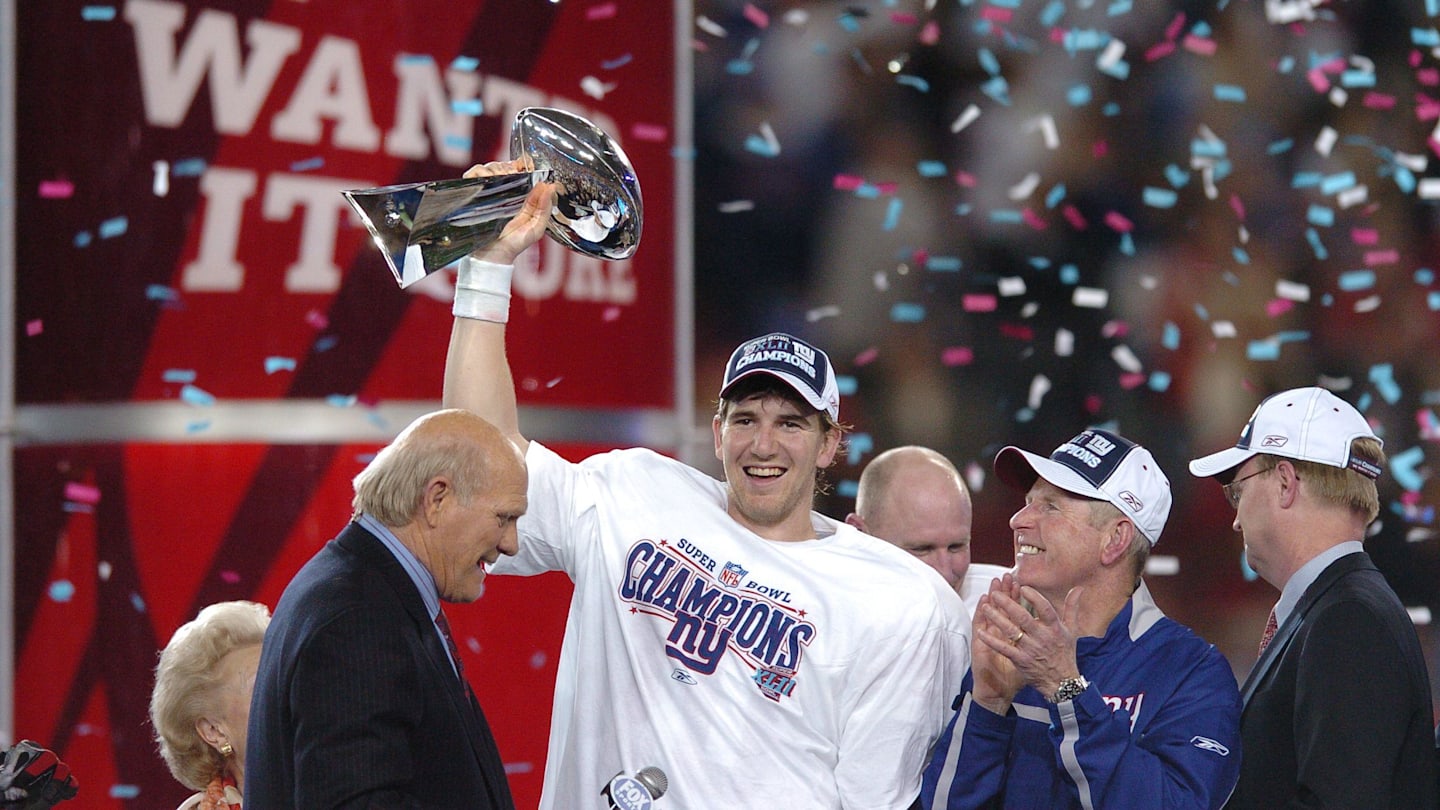


Sports Illustrated recently unveiled its top 50 most iconic NFL games since 1966, as chosen by a 37-member Blue Ribbon panel. The New York Giants not only made an appearance twice in the top half of the list, but both games chosen made it to the top ten–and with good reason.
Two Giants Super Bowl appearances made it into the top 25, both finishing in the top 10.
The Giants entered Super Bowl XXV with a 13-3 regular season record, including a Week 15 loss to the Buffalo Bills, their Super Bowl opponents.
In the regular season matchup against Buffalo, the Giants would lose the game and starting quarterback Phill Simms to a season-ending broken foot.
However, led by backup Jeff Hostetler on offense and the No. 2 ranked defense led by Lawrence Taylor, New York would go on to win its next five games.
Heading into the Super Bowl, the Bills were 6.5-point favorites against the Giants. Buffalo’s high-octane offense was led by the highest-rated passer, Jim Kelly, who completed 63.3% of his throws in the 1990 season.
However, the Giants wouldn’t back down. On the game’s first drive, the defense forced a three-and-out, which gave them confidence.
“We knew after the first drive we had a shot at these guys because our mentality was to be more physical than they are. And we did that,” former Giants defensive back Mark Collins said.
Down 12-3 in the second quarter, the Giants eventually rallied to cut the deficit to 12-10 following a Stephen Baker touchdown before halftime.
In the second half, Bill Parcells and the Giants aimed to control the time of possession. They did so with a 16-play drive that lasted eight minutes, capped off by an Otis Anderson touchdown to take a 17-12 lead. At the end of the game, the Giants had over 40 minutes of time of possession, compared to 19 for the Bills.
The Giants would once again take the lead back from the Bills. Following a 31-yard touchdown run from Thurman Thomas, Hostetler would lead another drive to regain a 20-19 lead with eight minutes left in the game.
After failed drives by both teams, the Bills found themselves with a chance to win the game after driving into Giants territory.
They now sat at the New York 29-yard line with eight seconds left. Scott Norwood came on to attempt a 47-yard field goal. It had the distance but ultimately hooked wide right.
The Giants immediately stormed the field in celebration. It was the second Super Bowl win for the Giants in the Bill Parcells era. Ottis Anderson was awarded the Super Bowl MVP after rushing for 102 yards and a touchdown.
For the Bills, this Super Bowl would mark the start of four straight appearances, all losses.
The New England Patriots came into the Super Bowl with an 18-0 record, including two postseason wins. One of their regular-season wins included a 38-35 triumph over the Giants in Week 17.
Meanwhile, the Giants were the scrappy underdog with a 10-6 and won all three of their playoff games on the road. They took that mentality into the game. The familiarity with the Patriots and a stacked defensive line helped them.
New York was first to strike as the offense moved down the field with a 16-play, 10-minute drive. Like the 1990 Super Bowl, the plan was to eat up the clock and play stout defense.
“I felt great from the opening drive because I felt we could move the ball on them. If you’re telling me at the end of the game we won and only scored 17 points, I would’ve been shocked because I felt like we could score on them based on what we did in the regular season and everything else,” said former Giants guard Chris Snee.
Tom Brady and the Patriots would score on the next possession to take a 7-3 lead. Then, the game turned into a defensive slugfest. The next score wouldn’t be until the fourth quarter when Eli Manning hit David Tyree for a five-yard touchdown.
The Patriots would answer again. This time on a Randy Moss touchdown with 2:45 left to play.
What followed next was one of the most memorable plays in Super Bowl history.
On a crucial 3rd-and-5, Eli Manning was drowning in a sea of Patriots defenders but miraculously escaped and heaved a pass downfield to Tyree, who superglued the ball to his head to secure the catch.
This led to a 13-yard touchdown grab by Plaxico Burress, which gave the Giants a 17-14 lead with 39 seconds left. The Giants eventually stopped the Patriots, pulling off one of the biggest upsets in Super Bowl history.
Manning was awarded his first Super Bowl MVP after a 255-yard, two-touchdown, and one interception performance. It would mark the first of two Super Bowls won by Manning and head coach Tom Coughlin.